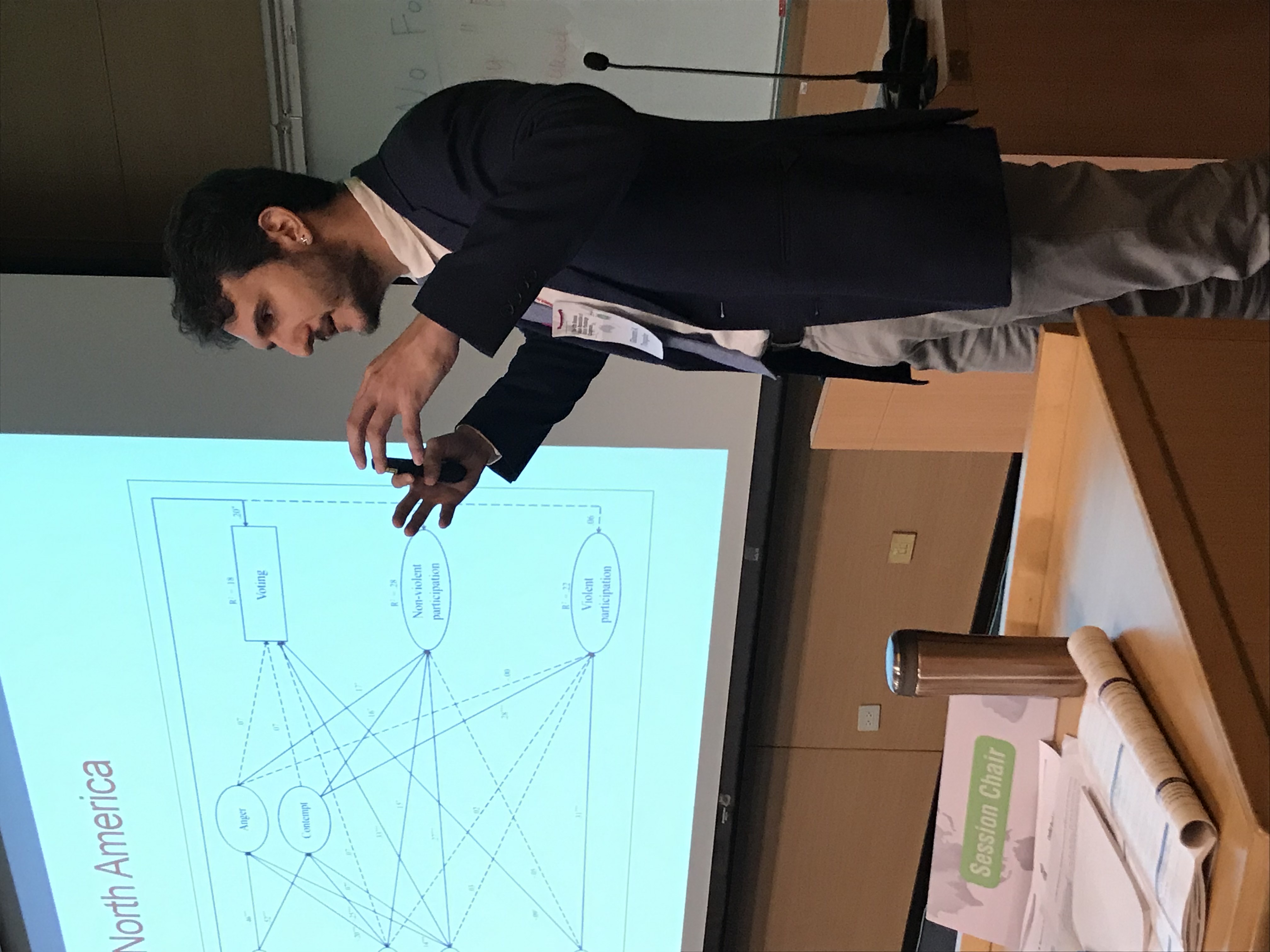
CP&G Lab Director
I joined the School of Law & Social Sciences, Department of Law & Criminology at Royal Holloway, University of London in 2021 as Associate Professor of Criminology and Psychology. Previously I held faculty positions at the University of Kent (Assistant Professor of Social & Organisational Psychology) and the Chinese University of Hong Kong, SZ (Assistant Professor of Applied Psychology). I obtained my PhD under the supervision of Prof. Dominic Abrams. In 2012, I founded Contention and since 2015 I co-edit the journal with Dr Benjamin Abrams.
Research
My expertise is in the Social Psychology of Intergroup and Intragroup Processes, with a specific focus on the nexus among Crime, Culture and Politics. My research has examined in what circumstances people tend to punish (or forgive) transgressions from group members. Another line of my work has examined how cultural values enable criminal groups to gain legitimacy in society. My research has been funded by the ESRC, the British Academy, and The Royal Society.
Selected Publications
For a full list of publications (with fulltext) see my profile on ResearchGate.
-
Yamada Y., Ćepulić, D., Coll-Martín, T., Debove, S., Gautreau, G., Han, H., Rasmussen, J., Tran T., Travaglino, G.A., COVIDiSTRESS Global Survey Consortium, & Lieberoth, A. (under review). COVIDiSTRESS Global Survey dataset on psychological and behavioural consequences of the COVID-19 outbreak. Preprint
-
Travaglino, G. A., & Moon, C. (under review). Explaining Compliance with Social Distancing Norms during the COVID-19 Pandemic: The Roles of Cultural Orientations, Trust and Self-Conscious Emotions in the US, Italy, and South Korea. Preprint
-
Travaglino, G. A. & Drury, L. (in press). The secret power of criminal organizations: A social psychological approach. New York: Springer. Link
-
Wang, K., Goldenberg, A., Dorison, C., Miller, J. K., Lerner, J. S., Gross, J., & Psychological Science Accelerator. (accepted in principle). A global test of brief reappraisal interventions on emotions during the COVID-19 pandemic. Nature Human Behaviour. Preprint
-
Travaglino, G. A., & Moon, C. (in press). Power distance orientation as an antecedent of individuals’ engagement in radical political actions. Group Processes and Intergroup Relations. Text
-
Travaglino, G. A., Li, Z., Zhang, X., Lu, X., & Choi, H-S. (in press). We are all in this together: The role of individuals’ social identities in problematic usage of the internet and videogames. British Journal of Social Psychology. doi: 10.1111/bjso.12365. Text
-
Abrams, D., Travaglino, G.A., Grant, P. R., Templeton, A., & Bennett, M. (in press). Mobilizing IDEAS in the Scottish Referendum: Predicting voting intention and well‐being with the Identity‐Deprivation‐Efficacy‐Action‐Subjective well‐being model. British Journal of Social Psychology. doi: 10.1111/bjso.12355 Text
-
Drury, L. & Travaglino, G. A. (in press). Demobilising by legitimising: Masculine honour, positive and negative Contact, and social activism against criminal organisations. Group Processes & Intergroup Relations. doi: 10.1177/1368430219842917 Text
-
Travaglino, G. A. & Abrams, D. (2019). How criminal organisations exert secret power over communities: An intracultural appropriation theory of cultural values and norms. European Review of Social Psychology, 30, 74-122. doi: 10.1080/10463283.2019.1621128 Text
-
Travaglino, G. A. (2017). Support for Anonymous as vicarious dissent: Testing the social banditry framework. Group Processes & Intergroup Relations. doi: 10.1177/1368430217722037 Text
Selected Invited Talks
-
Travaglino, G.A. (August/2019). The state and its discontents: Towards a social psychological understanding of mafias and bandits. Sungkyunkwan University.
-
Travaglino, G. A. (July/2018). Opposition to organised crime groups in southern Italy: The role of masculine honour ideology. University of Kyoto. Abstract
-
Travaglino, G. A. & Abrams, D. (Dec/2016). Brexit between borders: A social psychological analysis of the roles of aversion to foreigners and political trust in EU referendum voting intentions. SPSSI-UK Meeting, Queen’s University Belfast.
-
Travaglino, G. A. (May/2016). Passivity or legitimisation? Organised crime in society. University of Rome La Sapienza.
-
Travaglino, G. A. (February/2016). Legitimising organised crime: The social psychology of omertà. University of Exeter.